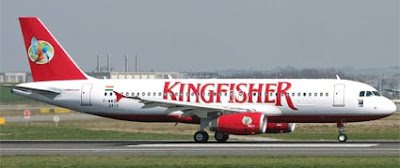According to Wikipedia alcohol drinking existed as early as 10000 B.C. In India, sura, a beverage popular among warriors, was in use during Indus Valley Civilization between 3000 B.C. and 2000 B.C. When Europeans landed in India they brought liquors from their homeland. Today, IMFL (Indian Made Foreign Liquor) is used to denote spirits that are distilled from molasses, artificially coloured, flavoured and marketed under various names like whisky, brandy, rum etc. In most countries the raw material or source of starch for whisky manufacture is malt; however in India very few distilleries use malt as the ingredient.
Indian liquor industry is a huge one, with an estimated 112 million cases a year. It has been growing at a Compounded Annual Growth Rate (CARG) of 10% and is expected to grow more as the life styles are changing and disposable income becomes higher.
While beer is manufactured from malt and wine from grapes, the other hard liquor in India depend on supply of molasses, a byproduct of sugar industry. The beer market in India too, is growing steadily and is estimated at 100 million cases a year.
At the National Stock Exchange, two brewery stocks are listed. United Spirits Limited (formerly McDowell & Company Limited; BSE Group: B1, Scrip Code: 532432) and Radico Khaitan Limited (BSE Group: B1, Scrip Code: 532497).
Let us now discuss the technical scenario of these stocks.
United Spirits Limited:
The United Breweries group was founded in 1857 by Thomas Leishman, a Scottish national. Vittal Mallya became the first Indian director of the group in 1947 and his son, Dr. Vijay Mallya who is also a member of the Parliament, is the Chairman of the group.
The company produces Kingfisher brand beers, Bagpiper, McDowell, Signature Whiskies, Celebration Rum, Romanov Vodka, Blue Riband Gin etc. United Spirits is the largest spirits manufacturer in India and the second largest distilled spirits company in the world, with sales exceeding 60 million cases annually. It has acquired many breweries and distilleries across India and the world. The company declared a net profit of Rs.497 crores during the financial year 2006 – 07. The UB group also owns Kingfisher Airlines and has acquired 26% stake in Deccan Aviation, a low cost airline.
Effective July 1, 2005 McDowell & Company demerged its non-spirits business and formed another company, McDowell Holdings limited. The monthly chart of the stock is shown below.
On October 31, 2002 the stock closed at 39.25 and on October 29, 2007 the stock had closed at 2064. This gives a price appreciation of 52.6 times. There are no reversal signs in the monthly, weekly or daily charts of the stock. The stock has yielded great returns for the long term investors.
Radico Khaitan Limited:
Radico was established in1943 as Rampur Distillery. In 1999 Radico decided to launch and market its own brands. In order to further boost its production capacity of bottled and branded products, the company has tied up with bottling units in various parts of the country. It has 3 millionaire brands viz. 8 PM whisky, Old Admiral brandy and Contessa rum. Radico is headed by Dr. Lalit Khaitan, Chairman and Managing Director. It declared a net profit of Rs.45.25 crores for the financial year 2006 – 07.
Radico Khaitan Ltd is the second largest spirits company in India. It has reached an agreement with Diageo (which has popular brands like Johnnie Walker) to form a 50:50 joint venture to exploit the large and developing Indian made foreign liquor (IMFL) segment.
Unlike United Spirits, the long term chart of the stock shows that it is struggling to close above the previous high at 212. There are no reversal signs in the monthly or weekly charts; however, it is bearish in daily chart as it is making lower highs and lower lows.
It can be seen that the stock had broken the short term support at 183 and closed below it. It is struggling to close above the resistance trendline. The next support exists for the stock at 151.95. Following the descending triangle breakout, the technical target works to 146.50. Those who wish to book some profits in the stock may do so, given the short term bearishness.
The stock had closed at 8.30 (adjusted for stock split) on October 31, 2003 and on October 29, 2007 it has closed at 193.75, leading to an appreciation of 23.34 times. In the same period, United Spirits appreciated 44.2 times.
Conclusion:
Clearly, United Spirits turns out to be the winner among the two in terms of price appreciation.






